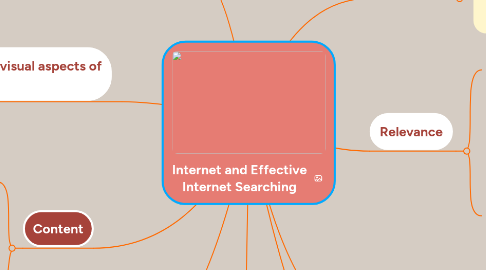Internet and Effective Internet Searching
저자: Taylor Cardozo


1. Technical and visual aspects of the page
1.1. Does the page take a long time to load?
1.2. Do any pictures or photographs on the page add to the information?
1.3. Is the spelling correct on the page?
1.4. Are there headings and subheading on the page and are they helpful?
1.5. Are their advertisements on the page?
2. Content
2.1. Why was the source created?
2.1.1. Does it have an economical value for the author or publisher?
2.2. Is the purpose of the page indicated on the home screen?
2.2.1. Is the information on the page/site useful for your purpose?
3. Date of publication
3.1. Can you tell when the document was created?
3.2. If there is no date, does the information seem to be current?
3.3. Does up-to-date information matter for your purpose?
4. Are your sources credible?
5. Follow the link to find out more
6. Authority
6.1. Who created the page?
6.1.1. What organisation is the person affiliated with?
6.1.2. In which communities and contexts does the author have expertise?
6.1.3. What else has the author written?
7. Relevance
7.1. How is it relevant to your research?
7.1.1. Does it analyze the primary sources that you're researching?
7.1.2. Does it cover the authors or individuals that you're researching, but different primary texts?
7.2. What is the scope of coverage?
7.2.1. Is it a general overview or an in-depth analysis?
7.2.2. Does the scope match your own information needs?
